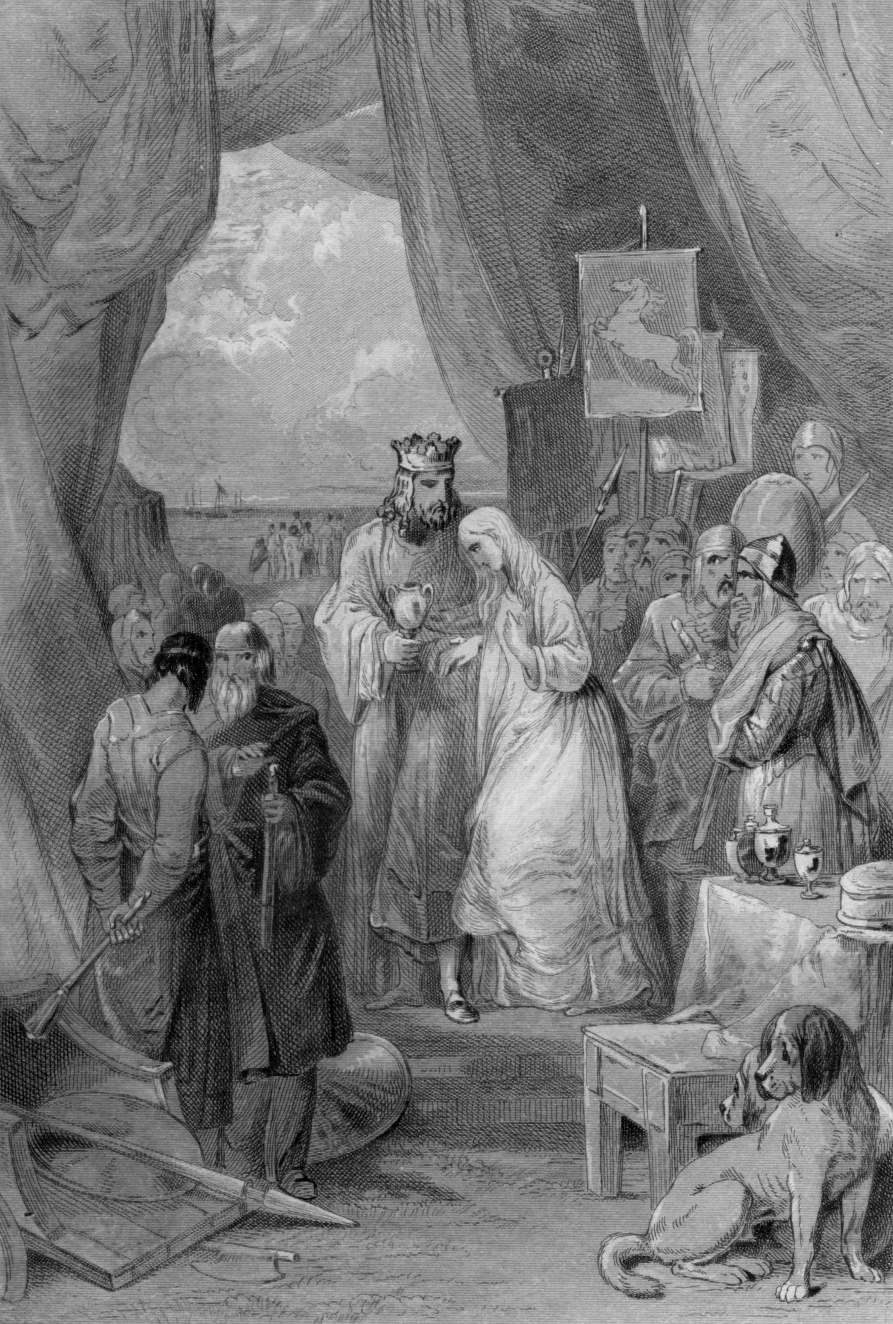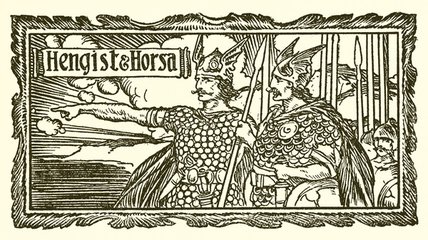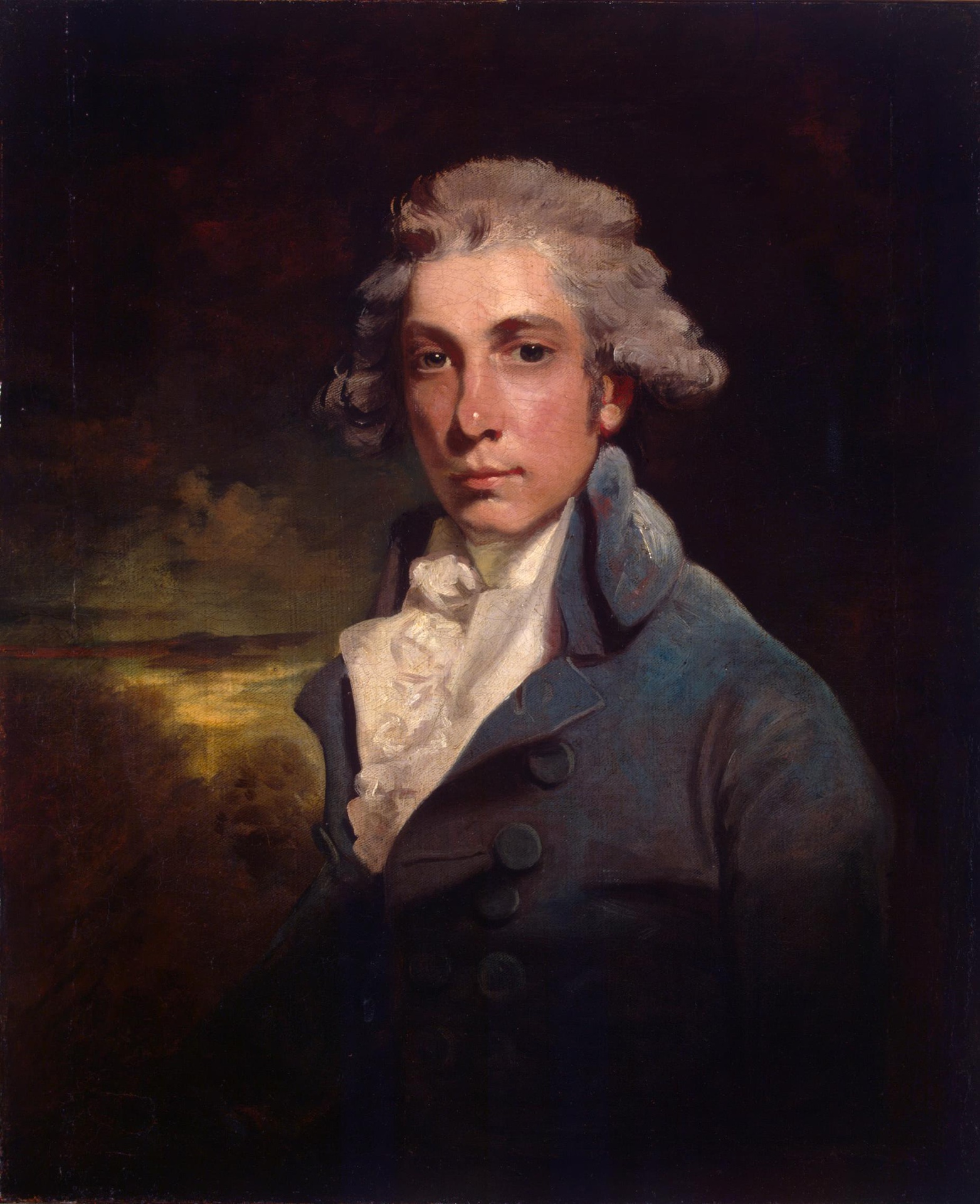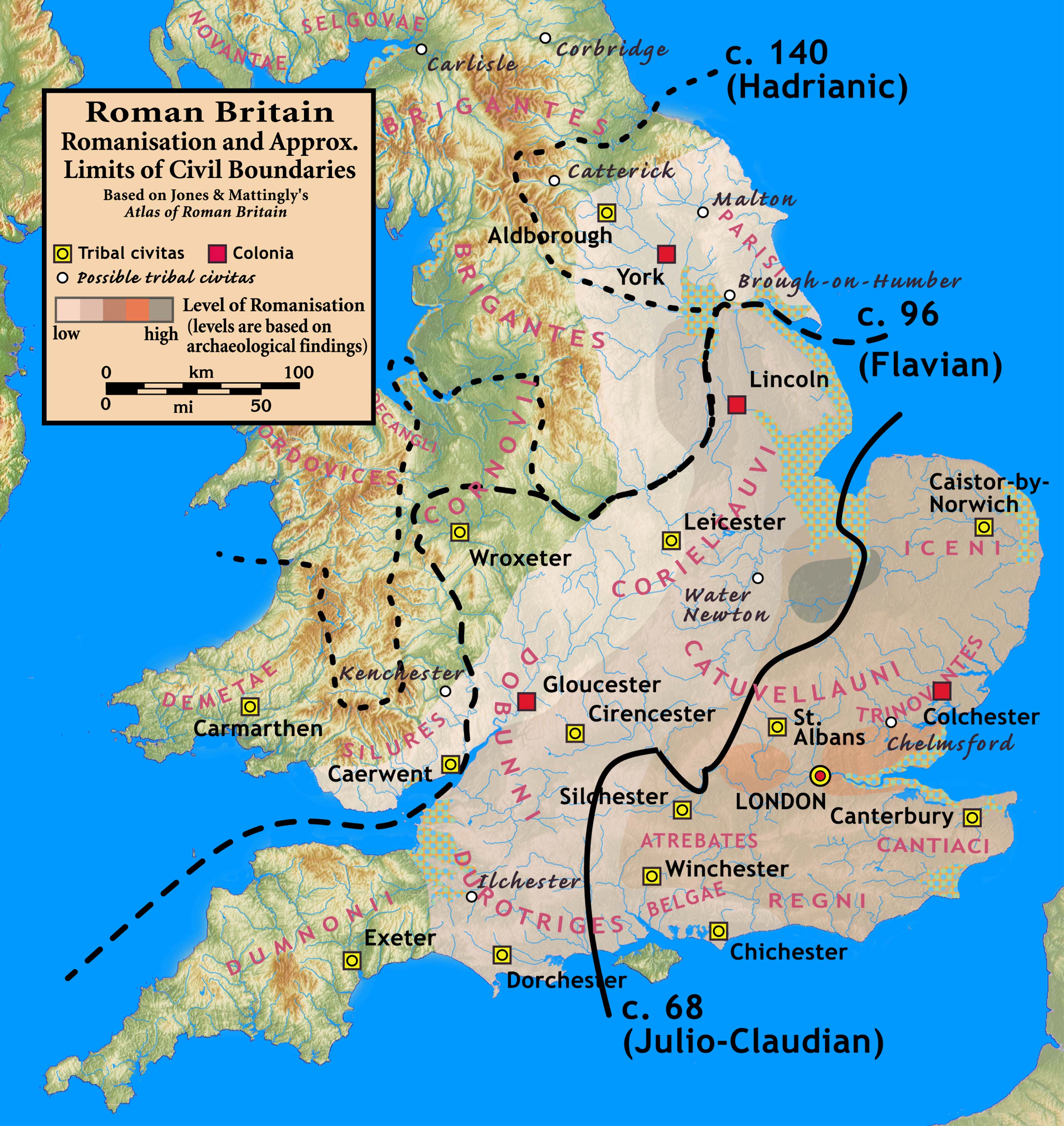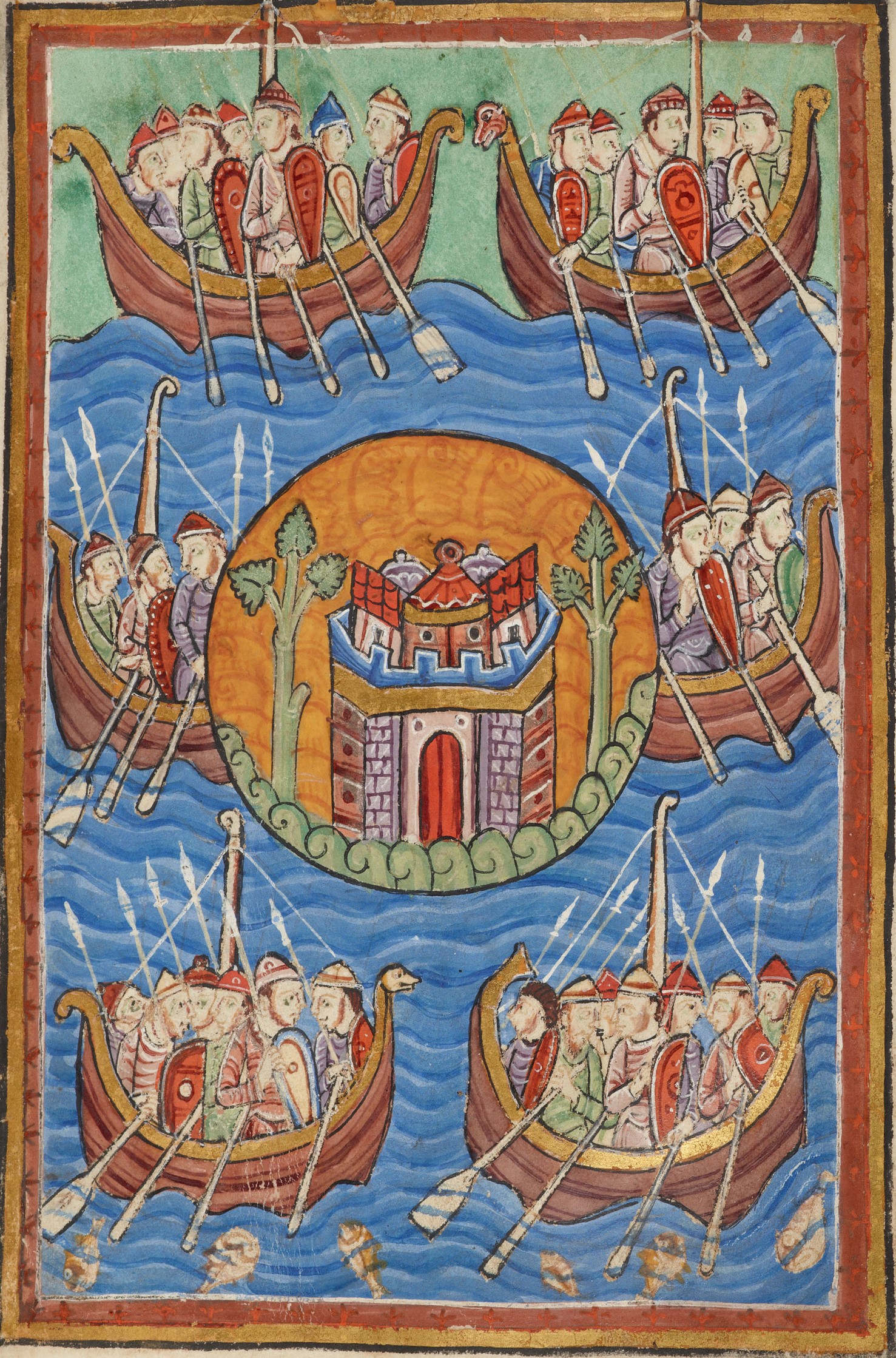|
Vortigern
Vortigern (; , ; ; ; Old Breton: ''Gurdiern'', ''Gurthiern''; ; , , , etc.), also spelled Vortiger, Vortigan, Voertigern and Vortigen, was a 5th-century warlord in Sub-Roman Britain, Britain, known perhaps as a king of the Britons or at least connoted as such in the writings of Bede and Gildas. His existence is contested by scholars and information about him is obscure. He may have been the "superbus tyrannus" said to have invited Hengist and Horsa to aid him in fighting the Picts and the Scottish people, Scots, whereupon they revolted, killing his son in the process and forming the Kingdom of Kent. It is said that he took refuge in North Wales, and that his grave was in Dyfed or the Llŷn Peninsula. Gildas later denigrated Vortigern for his misjudgement and also blamed him for the loss of Britain. He is cited at the beginning of the genealogy of the early Kingdom of Powys, Kings of Powys. Medieval accounts Gildas The 6th-century cleric and historian Gildas wrote ''De Excidio ... [...More Info...] [...Related Items...] OR: [Wikipedia] [Google] [Baidu] |
Hengist And Horsa
Hengist (, ) and Horsa are legendary Germanic peoples, Germanic brothers who according to later English legends and ethnogenesis theories led the Angles (tribe), Angles, Saxons and Jutes, the progenitor groups of modern English people, in their Anglo-Saxon settlement of Britain, supposed invasion of Great Britain in the 5th century. Tradition lists Hengist as the first of the Jutish kings, or alternatively as the founder itself, of the Kingdom of Kent. Modern scholarly consensus regards Hengist and Horsa as mythical figures, given their alliteration, alliterative animal names, the seemingly constructed nature of their genealogy, and the unknowable quality of Bede's sources.Halsall (2013:60-62). Their later detailed representation in texts such as the Anglo-Saxon Chronicle says more about ninth-century attitudes to the past than about the time in which they are said to have existed.Yorke (1993).Harland (2021:32). According to early sources, Hengist and Horsa arrived in Britain ... [...More Info...] [...Related Items...] OR: [Wikipedia] [Google] [Baidu] |
Vortigern And Rowena
''Vortigern and Rowena'', or ''Vortigern, an Historical Play'', is a play that was touted as a newly discovered work by William Shakespeare when it first appeared in 1796. It was eventually revealed to be a Shakespeare hoax, the product of prominent forger William Henry Ireland and part of his wider series of forgeries. Its first performance was on 2 April 1796, when it was ridiculed by the audience. Its titular protagonists, Vortigern and Rowena, are figures from Britain's traditional history. History Ireland had produced several earlier documents he claimed represented the writings of Shakespeare, but ''Vortigern and Rowena'' was the first play he attempted. He shortly followed it with a forged ''Henry II''. He had announced his "discovery" of the lost play as early as 26 December 1794 but did not show his father a manuscript until March 1795. He also provided a purported correspondence between Shakespeare and a printer explaining why the play was unpublished, as well as ... [...More Info...] [...Related Items...] OR: [Wikipedia] [Google] [Baidu] |
Kingdom Of Powys
The Kingdom of Powys (; ) was a Welsh successor state, petty kingdom and principality that emerged during the Middle Ages following the end of Roman rule in Britain. It very roughly covered the northern two-thirds of the modern county of Powys and part of today's English West Midlands (see map). More precisely, and based on the Romano-British tribal lands of the Ordovices in the west and the Cornovii in the east, its boundaries originally extended from the Cambrian Mountains in the west to include the modern West Midlands region of England in the east. The fertile river valleys of the Severn and Tern are found there, and this region is referred to in later Welsh literature as "the Paradise of Powys" (an epithet retained in Welsh for the modern UK county). Name The name Powys is thought to derive from Latin ''pagus'' 'the countryside' and ''pagenses'' 'dwellers in the countryside', also the origins of French "pays" and English "peasant". During the Roman Empire, this regi ... [...More Info...] [...Related Items...] OR: [Wikipedia] [Google] [Baidu] |
Sub-Roman Britain
Sub-Roman Britain, also called post-Roman Britain or Dark Age Britain, is the period of late antiquity in Great Britain between the end of Roman rule and the founding of Anglo-Saxon kingdoms. The term was originally used to describe archaeological remains found in 5th- and 6th-century AD sites that hinted at the decay of locally made wares from a previous higher standard under the Roman Empire. It is now used to describe the period that began with the recall of Roman troops from Britannia to Gaul by Constantine III in 407 and ended with the Battle of Deorham in 577. This period has attracted a great deal of academic and popular debate, in part because of the lack of written records from the time. Meaning of terms The period of sub-Roman Britain traditionally covers the history of the parts of Britain that had been under Roman rule from the end of Roman imperial rule, traditionally dated to be in 410, to the arrival of Saint Augustine in 597. The date taken for the end ... [...More Info...] [...Related Items...] OR: [Wikipedia] [Google] [Baidu] |
Kingdom Of Kent
The Kingdom of the Kentish (; ), today referred to as the Kingdom of Kent, was an Early Middle Ages, early medieval kingdom in what is now South East England. It existed from either the fifth or the sixth century AD until it was fully absorbed into the Kingdom of Wessex in the mid-9th century and later into the Kingdom of England in the early 10th century. Under the preceding Roman Britain, Romano-British administration the area of Kent faced repeated attacks from seafaring raiders during the fourth century AD. It is likely that Germanic-speaking ''foederati'' were invited to settle in the area as mercenaries. Following the end of Roman administration in 410, further linguistically Germanic tribal groups moved into the area, as testified by both archaeological evidence and Late Anglo-Saxon textual sources. The primary ethnic group to settle in the area appears to have been the Jutes: they established their Kingdom in East Kent and may initially have been under the dominion of the ... [...More Info...] [...Related Items...] OR: [Wikipedia] [Google] [Baidu] |
Romano-British Culture
The Romano-British culture arose in Britain under the Roman Empire following the Roman conquest in AD 43 and the creation of the province of Britannia. It arose as a fusion of the imported Roman culture with that of the indigenous Britons, a people of Celtic language and custom. Scholars such as Christopher Snyder believe that during the 5th and 6th centuries – approximately from 410 when the Roman legions withdrew, to 597 when St Augustine of Canterbury arrived – southern Britain preserved an active sub-Roman culture that survived the attacks from the Anglo-Saxons and even used a vernacular Latin when writing. Arrival of the Romans Roman troops, mainly from nearby provinces, invaded in AD 43, in what is now part of England, during the reign of Emperor Claudius. Over the next few years the province of Britannia was formed, eventually including the whole of what later became England and Wales and parts of Scotland.Kinder, H. & Hilgemann W. ''The Penguin Atlas of Wo ... [...More Info...] [...Related Items...] OR: [Wikipedia] [Google] [Baidu] |
King Of The Britons
The title King of the Britons (, ) was used (often retrospectively) to refer to a ruler, especially one who might be regarded as the most powerful, among the Celtic Britons, both before and after the period of Roman Britain up until the Norman invasion of Wales and the Norman conquest of England. Britons were the Brittonic-speaking (ancestral language of Welsh) peoples of what is now Wales, England England is a Countries of the United Kingdom, country that is part of the United Kingdom. It is located on the island of Great Britain, of which it covers about 62%, and List of islands of England, more than 100 smaller adjacent islands. It ... and Scottish Lowlands, southern Scotland. The Britons contributed as ethnic ancestors of the native British people, British population including the English people, English, Welsh people, Welsh, Cornish people, Cornish, and Scottish people, Scottish people but also of the Bretons. During the House of Normandy, Norman and House of Pla ... [...More Info...] [...Related Items...] OR: [Wikipedia] [Google] [Baidu] |
Gildas
Gildas (English pronunciation: , Breton language, Breton: ''Gweltaz''; ) — also known as Gildas Badonicus, Gildas fab Caw (in Middle Welsh texts and antiquarian works) and ''Gildas Sapiens'' (Gildas the Wise) — was a 6th-century Britons (historic), British monk best known for his religious polemic , which recounts the history of the Britons before and during Anglo-Saxon settlement of Britain, the coming of the Saxons. He is one of the best-documented figures of the Christian church in the British Isles during the Sub-Roman Britain, sub-Roman period, and was renowned for his Biblical knowledge and literary style. In his later life, he emigrated to Brittany, where he founded a monastery known as Saint-Gildas-de-Rhuys. Hagiography Birthplace Differing versions of the ''Life of Saint Gildas'' exist, but both agree that he was born at a place called ''Arecluta'' which is described by the author as taking its name from a "certain river called the Clut, by which that district is, ... [...More Info...] [...Related Items...] OR: [Wikipedia] [Google] [Baidu] |
Jutes
The Jutes ( ) were one of the Germanic people, Germanic tribes who settled in Great Britain after the end of Roman rule in Britain, departure of the Roman Britain, Romans. According to Bede, they were one of the three most powerful Germanic nations, along with the Angles (tribe), Angles and the Saxons: There is no consensus amongst historians on the origins of the Jutes. One hypothesis is that they originated from the Jutland Peninsula but after a Danish invasion of that area, migrated to the Frisian coast. From the Frisian coast they went on to settle southern Britain in the later fifth century during the Migration Period, as part of a larger wave of Germanic migration into Britain. They were possibly or probably related to the North Germanic tribe Geats. Settlement in southern Britain During the period after the Roman Britain, Roman occupation and before the Norman conquest, people of Germanic descent arrived in Britain, ultimately forming England. The ''Anglo-Saxon Chr ... [...More Info...] [...Related Items...] OR: [Wikipedia] [Google] [Baidu] |
Anglo-Saxons
The Anglo-Saxons, in some contexts simply called Saxons or the English, were a Cultural identity, cultural group who spoke Old English and inhabited much of what is now England and south-eastern Scotland in the Early Middle Ages. They traced their origins to Germanic peoples, Germanic settlers who became one of the most important cultural groups in Britain by the 5th century. The Anglo-Saxon period in Britain is considered to have started by about 450 and ended in 1066, with the Norman conquest of England, Norman Conquest. Although the details of Anglo-Saxon settlement of Britain, their early settlement and History of Anglo-Saxon England, political development are not clear, by the 8th century an Anglo-Saxon cultural identity which was generally called had developed out of the interaction of these settlers with the existing Romano-British culture. By 1066, most of the people of what is now England spoke Old English, and were considered English. Viking and Norman invasions chang ... [...More Info...] [...Related Items...] OR: [Wikipedia] [Google] [Baidu] |
Anglo-Saxon Settlement Of Britain
The settlement of Great Britain by Germanic peoples from continental Europe led to the development of an Anglo-Saxons, Anglo-Saxon cultural identity and a shared Germanic language—Old English—whose closest known relative is Old Frisian, spoken on the other side of the North Sea. The first Germanic speakers to settle Britain permanently are likely to have been soldiers recruited by the Roman administration in the 4th century AD, or even earlier. In the early 5th century, during the end of Roman rule in Britain and the breakdown of the Roman economy, larger numbers arrived, and their impact upon local culture and politics increased. There is Historiography of the Anglo-Saxon settlement of Britain, ongoing debate about the scale, timing and nature of the Anglo-Saxon settlements and also about what happened to the existing populations of the regions where the migrants settled. The available evidence includes a small number of medieval texts which emphasize Saxons, Saxon settle ... [...More Info...] [...Related Items...] OR: [Wikipedia] [Google] [Baidu] |
Marcian
Marcian (; ; ; 392 – 27 January 457) was Roman emperor of the Byzantine Empire, East from 450 to 457. Very little is known of his life before becoming emperor, other than that he was a (personal assistant) who served under the commanders Ardabur (consul 427), Ardabur and his son Aspar for fifteen years. After the death of Emperor Theodosius II on 28 July 450, Marcian was made a candidate for the throne by Aspar, who held much influence because of his military power. After a month of negotiations Pulcheria, Theodosius' sister, agreed to marry Marcian. Zeno (consul 448), Zeno, a military leader whose influence was similar to Aspar's, may have been involved in these negotiations, as he was given the high-ranking court title of Patrician (ancient Rome)#Late Roman and Byzantine period, patrician upon Marcian's accession. Marcian was elected and inaugurated on 25 August 450. Marcian reversed many of the actions of TheodosiusII in the Eastern Roman Empire's relationship wi ... [...More Info...] [...Related Items...] OR: [Wikipedia] [Google] [Baidu] |
